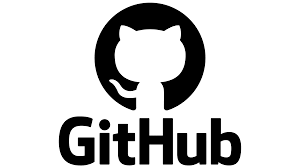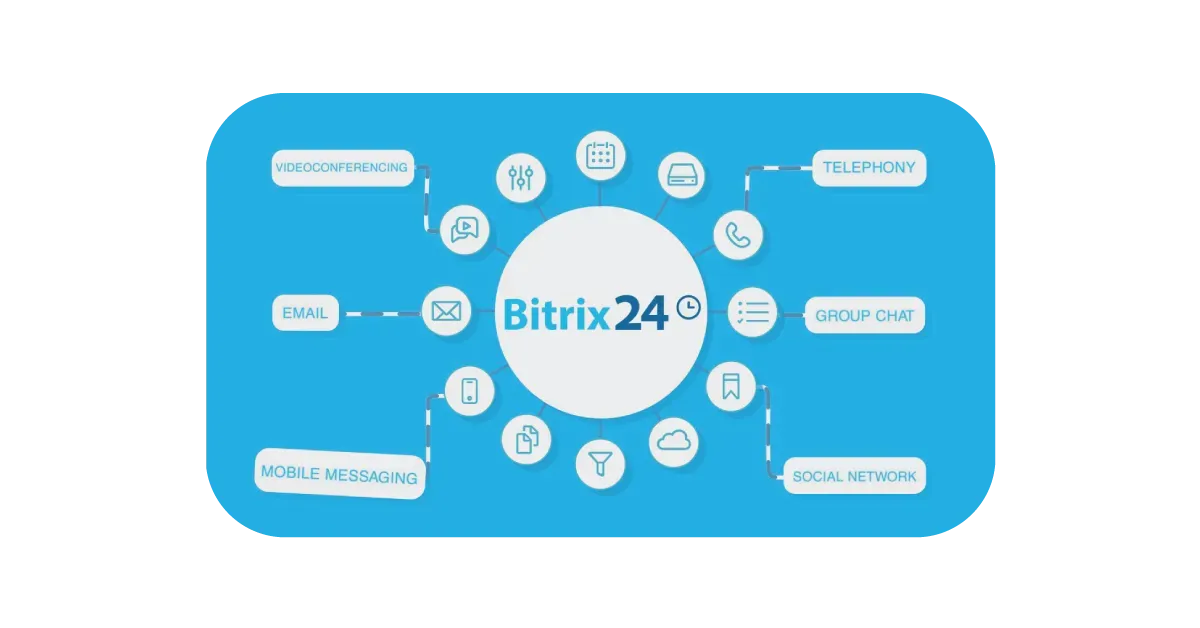Introduction
GitHub has cemented itself as the epicenter of innovation for developers and enterprises worldwide. Over 83 million developers and over 73 million repositories make GitHub the largest host of source code globally as of 2022 (GitHub Octoverse, 2022).
Integrating business tools and systems with GitHub hence feeds direct access to bleeding edge capabilities to gain competitive advantage.
Specifically, linking productivity suite APIs, databases, and messaging channels to GitHub repositories via triggers allows smoother roll out of new features to minimize time to market.
As McKinsey highlights, proactive adopters of collaborative tools improve software development efficiency by over 80% (McKinsey, 2022). Integrations also strengthen feedback loops to accelerate product enhancements aligned with end-user requirements published on GitHub via issues and code reviews.
If you are still thinking why your business needs GitHub integration today? This article is for you. Continue reading to know more about it.
What is GitHub Integration?
GitHub Integration refers to the seamless connection between GitHub, a widely used platform for version control and collaboration on software development projects, and other tools or services.

Integration allows for automated workflows, smoother collaboration, and enhanced productivity. It enables developers to connect GitHub repositories with various third-party services such as project management tools, continuous integration/delivery platforms, code review systems, and issue trackers.
This integration facilitates tasks like automatic code deployment, notification of code changes, tracking of issues and bugs, and synchronization of project updates across different platforms.
By integrating GitHub with other tools, teams can streamline their development processes, improve communication, and ensure better coordination among team members. Overall, GitHub Integration enhances efficiency, fosters collaboration, and helps teams deliver high-quality software products more effectively.
Why Your Business Needs GitHub Integration Today
GitHub integration brings a plethora of advantages to software development teams. Let's dive into and see where it makes a significant impact.
Streamlining Collaboration and Workflow
With GitHub integration, collaboration among team members becomes seamless. Developers can easily share their code, review each other's work, and merge changes without any hassle. The beauty of this integration lies in its version control system, which enables developers to track changes, maintain the integrity of the codebase, and easily roll back if needed.
By leveraging GitHub's pull request feature, developers can submit their proposed changes and have them reviewed by other team members. This not only improves the overall quality of the code but also fosters collaboration and knowledge-sharing within the team. The ability to leave comments and provide feedback directly within the codebase ensures clear communication and efficient iteration.
Enhancing Developer Productivity
GitHub integration provides developers with a centralized platform for managing their projects. They can track issues, assign tasks, and automate workflows, all within one place. This streamlines project management and helps keep everyone on the same page.
Tools like pull requests and code reviews can significantly enhance developer productivity. Pull requests simplify the process of merging code changes, allowing developers to review, discuss, and refine the code before merging it into the main codebase. This promotes code quality, reduces the chances of introducing bugs, and enables knowledge sharing among team members.
Automating Deployment Processes
With the rise of DevOps and continuous delivery, automating deployment processes has become essential in modern software development. GitHub integration provides developers with an extensive range of tools to automate these deployment processes.
Continuous Integration and Deployment
GitHub integration with continuous integration and deployment (CI/CD) tools enables developers to automate testing, building, and deployment processes. CI/CD tools like Jenkins, Travis CI, and CircleCI can easily integrate with GitHub, enabling developers to automate their workflows.
By automating these processes, developers can achieve heightened efficiency, speed, and accuracy, while reducing human error. Automated testing helps catch potential issues early and automating the deployment process ensures a faster time-to-market.
Seamless Integration with Deployment Platforms
GitHub's seamless integration with popular deployment platforms like Heroku, AWS, and Azure results in streamlined deployment workflows. These platforms provide templates and tools to simplify the deployment process, enabling developers to deploy their applications with confidence.
By integrating GitHub with these deployment platforms, developers can leverage the full power of the cloud. The ease of managing infrastructure and automating deployment workflows accelerates the speed of development and increases overall productivity.
GitOps Principles
A relatively new concept in DevOps, GitOps is gaining popularity due to its ability to simplify infrastructure management and improve deployment quality.
Simply put, GitOps is the practice of using version control and collaboration tools for infrastructure management and version-controlled deployments. This practice enables the declaration and revision of infrastructure changes through Git commits, enabling developers to manage infrastructure as code.
GitHub's integration with GitOps principles provides developers with the tools to manage their infrastructure and deployment processes from a version-controlled perspective. By implementing declarative infrastructure and version-controlled deployments, GitOps ensures consistent and reliable infrastructure management and supports faster and more reliable deployments.
Facilitating Project Management and Issue Tracking
Effective project management and issue tracking are crucial for the success of any software development project. GitHub integration provides powerful features to facilitate project management and streamline issue tracking.
Project Management with GitHub Projects
GitHub Projects offer comprehensive project management capabilities, allowing teams to track tasks, prioritize them, and visualize progress. Using project boards, developers can create custom workflows that reflect their development process, such as "To Do," "In Progress," and "Completed" columns.
Integrating GitHub with popular project management tools like Jira or Trello further enhances project organization and collaboration. Developers can synchronize issues and tasks between GitHub and these tools, ensuring seamless communication and visibility across the team. This integration allows project managers to leverage the power of GitHub's collaboration features while maintaining a unified view of the project's progress.
Issue Tracking and Bug Management
GitHub's built-in issue tracking system simplifies issue tracking and bug management. Developers can create issues, assign them to team members, categorize them with labels, and prioritize them using milestones. The ability to comment, assign, and track changes directly within the issue ensures clear communication and efficient collaboration.
Integrating GitHub with bug tracking tools like Bugzilla or Zendesk further enhances issue management. This integration allows issues reported in external bug tracking systems to be automatically created as GitHub issues, enabling seamless cross-platform tracking. Developers can then track and manage all their issues and bug fixes from a single, centralized interface.
Ensuring Code Quality and Security
Ensuring code quality and security is essential in software development, and GitHub integration provides developers with the tools needed to accomplish this crucial task.
Code Reviews and Quality Assurance
Code reviews play a vital role in ensuring code quality, identifying vulnerabilities, and maintaining coding standards. They provide an opportunity for developers to review each other's code, provide feedback, and catch any issues before they make their way into production.
GitHub's built-in code review features, such as pull requests and code commenting, make the code review process more efficient and effective. Developers can create pull requests to propose changes, and team members can review the changes, leave comments, and suggest improvements. This collaborative approach ensures that code is thoroughly evaluated and meets the required standards.
Security and Compliance Concerns
Security is a top concern in software development, and integrating GitHub with security analysis tools provides automated code scanning, vulnerability detection, and compliance checks. These tools scan code repositories for potential security vulnerabilities, such as insecure dependencies or sensitive data exposure.
Addressing security concerns in software development is crucial to protect sensitive data and maintain regulatory compliance. By integrating GitHub with security analysis tools, developers can identify and address security vulnerabilities early in the development process. This proactive approach strengthens the overall security posture of the application and helps prevent data breaches or compliance violations.
Facilitating Collaboration and Knowledge Sharing
GitHub integration goes beyond code management and offers features that promote collaboration and knowledge sharing within the developer community.
Open Source Contributions and Community Engagement
GitHub integration encourages businesses to contribute to open source projects and engage with the developer community. By actively participating in open source, businesses can benefit from increased visibility, reputation building, and knowledge sharing.
Contributing to open source projects allows businesses to showcase their expertise, gain recognition in the developer community, and attract top talent. It also provides an opportunity to collaborate with talented developers from around the world, learn from their skills and experiences, and share ideas. Moreover, engaging in open source projects fosters innovation and drives the evolution of cutting-edge technologies.
Suggested Reading:
Documentation and Wikis
GitHub's wiki feature enables businesses to create and maintain documentation, knowledge bases, and project wikis. Documentation is crucial for promoting knowledge sharing, onboarding new team members, and ensuring project sustainability.
With GitHub wikis, businesses can easily create and manage comprehensive documentation for their projects. Wikis allow teams to document project specifications, coding guidelines, best practices, and troubleshooting instructions. This centralized knowledge base ensures that important information is readily accessible to all team members, regardless of their time zones or locations.
Maintaining well-documented wikis also streamlines the onboarding process for new team members. They can quickly familiarize themselves with project workflows, conventions, and architectural decisions, leading to faster ramp-up times and increased productivity. Additionally, wikis aid in project sustainability by mitigating knowledge gaps when team members leave or transition to other roles.
Conclusion
In conclusion, integrating tools and systems with the world's leading open developer platform, GitHub, unlocks immense opportunities for organizations to boost agility, collaboration, and continuous innovation.
Recent projections indicate global spending on developer solutions will reach over $60 billion by 2025 underscoring the strategic priority of code centric workflows (Pitchbook, 2023). Tight coupling through open API integrations feeds direct access to state-of-the-art capabilities on GitHub to supercharge delivery.
Specifically, McKinsey estimates that companies which leverage collective intelligence via platforms like GitHub demonstrate over 120% more productivity in critical areas like engineering (McKinsey, 2021).
Automating testing and releases by linking suites to GitHub repositories also minimizes time to market while enhancing quality. As product launch cycles continue to shrink amid fierce competition, deriving maximum leverage from flourishing external innovation ecosystems will separate market winners.
Overall, from revolutionary codeless AI across Copilot to visionary blockchain modules using web3 libraries, the future of software engineering lives on GitHub today. Committing to early, deep integrations promises to drive exponential returns for enterprises seeking generational technology leadership over competitors.
Frequently Asked Questions (FAQs)
How does GitHub integration benefit my business?
GitHub integration enables seamless collaboration, version control, and project management, enhancing productivity, code quality, and overall efficiency within your development team.
Can GitHub integration help streamline code deployment?
Absolutely! With GitHub integration, you can automate code deployments, track changes, and ensure a smooth workflow, reducing errors and enabling faster and more efficient software releases.
Does GitHub integration facilitate code reviews?
Yes! GitHub integration offers features like pull requests and code review tools that allow your team to collaborate, share feedback, and ensure high-quality code before merging it into the main repository.
How does GitHub integration improve project management?
Definitely! GitHub integration offers project management tools like issue tracking, milestone planning, and task management, helping you organize and prioritize work effectively.
How does GitHub integration enhance team collaboration?
Absolutely! With GitHub integration, your team members can collaborate in real-time, contribute to projects, and share ideas, fostering a culture of teamwork and innovation within your organization.


